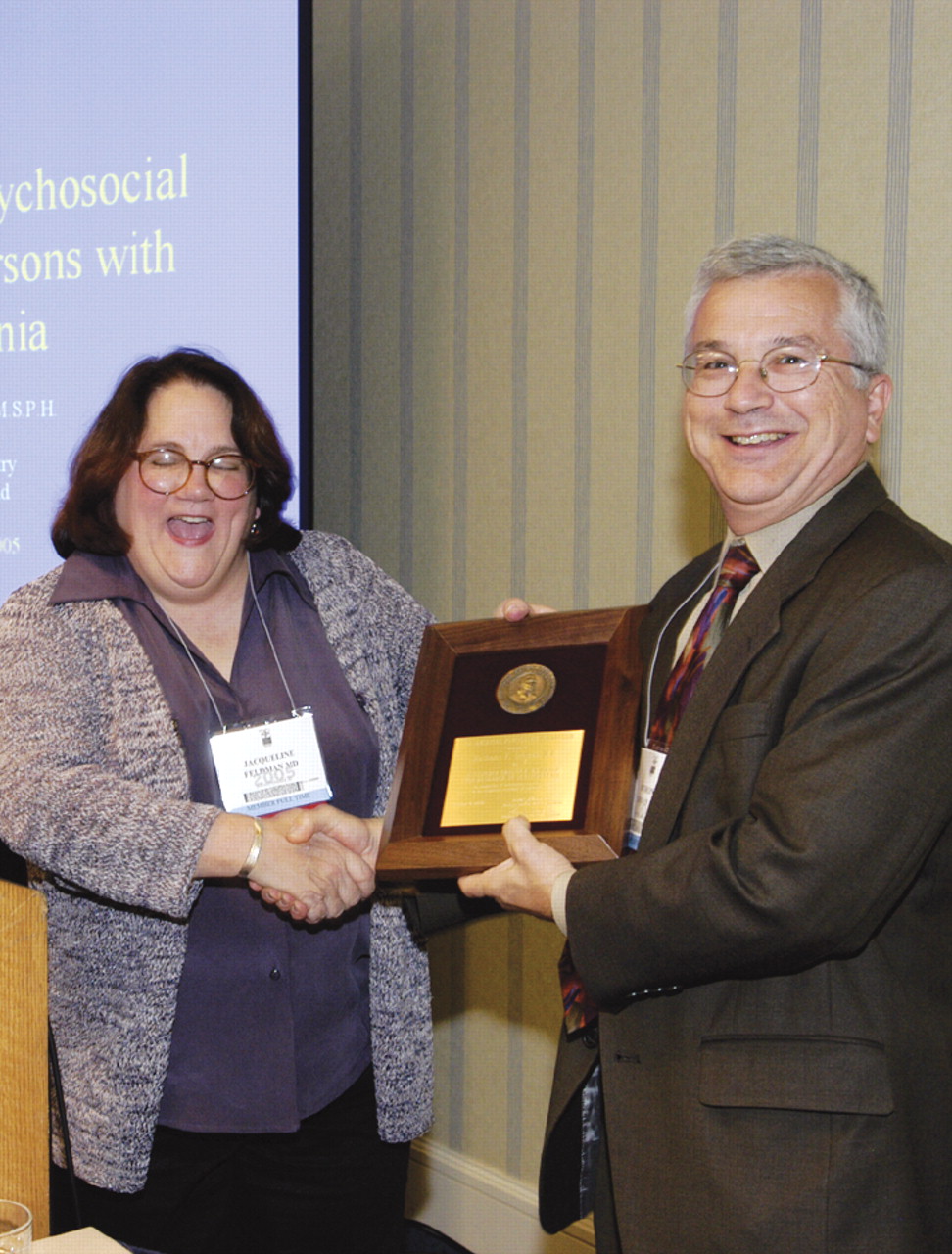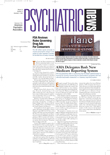Psychosocial treatments are underutilized in the treatment of schizophrenia, despite proven efficacy when used in combination with antipsychotic medication, said Anthony F. Lehman, M.D., M.S.P.H., in a presentation at APA's 57th Institute on Psychiatric Services last month in San Diego.
Psychological and family interventions, assertive community treatment (ACT), and supported employment strategies have been found to be highly effective in the treatment of schizophrenia and are recommended in APA's treatment guidelines.
Yet because of reimbursement and funding issues, or because of lack of training in psychosocial interventions on the part of mental health professionals, treatment of schizophrenia is often confined to pharmacotherapy alone.
“All evidence-based psychosocial treatments for persons with schizophrenia are recommended within the context of appropriate pharmacotherapy,” Lehman said at the institute. “Pharmacotherapy plus psychosocial interventions are generally more effective than pharmacotherapy alone, but there is a gap between what science tells us to do and what we do in actual practice.
“Most patients are offered some form of counseling, but the nature of the treatment is often ill defined. And typically the work-force is not adequately trained in evidence-based approaches.”
Lehman is professor and chair of the department of psychiatry at the University of Maryland School of Medicine. And he was principal investigator for the Schizophrenia Patient Outcome Research Team, which originally released treatment recommendations, as well as a report on how patterns of usual care conformed to those recommendations, in 1998.
At the institute, he drew on those findings and some more recent research in an overview of psychosocial treatment including psychological interventions, family interventions, ACT, and supported employment.
Lehman noted that early research on psychotherapy of schizophrenia was grounded in psychoanalytic theories that have since been discounted as causal explanations for schizophrenia. But today, cognitive-behavioral therapy (CBT), social-skills training, and cognitive remediation—manualized strategies that have sometimes been referred to as “training the brain”—have a proven track record of efficacy.
Lehman said CBT appears to be most effective among outpatients with residual symptoms for reducing beliefs in delusions, distress associated with delusions, and overall level of symptoms. It may reduce depression and negative symptoms, but does not appear to reduce the likelihood of relapse.
Predictors of success with CBT include whether the patients have some level of “cognitive flexibility” regarding delusions—that is, the ability to question the validity of delusional thoughts—and insight about the condition.
Similarly, social-skills training does not appear to be substantially effective for symptom reduction or relapse prevention, but does have a reliable and significant effect on specific behavioral skills, with a positive impact on defined areas of functioning, Lehman said. And it has a positive effect on patient satisfaction and self-efficacy, he said.
A principal obstacle plaguing the use of social-skills training is the lack of generalizability from the laboratory to the community; patients may reliably learn the skills during training but fail to use them when they are on their own.
Cognitive remediation (CR) is a third psychological intervention that focuses on “thinking” skills, especially those cognitive abilities affected by the disease. Targets of CR have included verbal memory, problem solving and executive function, attention, social perception, and work performance.
CR generally involves five weeks to six months of training on self-guided computer tasks using commercially produced educational software, and intensive individual training using paper and pencil neurocognitive test materials.
Lehman presented evidence from studies showing that combining medication with family education substantially reduces the risk of relapse. Key elements of family education are duration of at least nine months, illness education, crisis intervention, emotional support, and training in how to cope with illness symptoms.
Finally, he presented data from 25 studies over the years comparing ACT with “usual care.” On measures of time spent in hospital, housing stability, quality of life, and patient satisfaction, the number of studies that found ACT superior to usual care was greater by a wide margin than those that found no difference. However, on measures of symptom severity, social functioning, vocational functioning, and number of times people were arrested and jailed, the number of studies (among the 25) that found no difference between ACT and usual care was greater than the number that found any difference—but the margin was small, and on all of those measures there were some studies that found an advantage for ACT.
Pioneered by Leonard Stein, M.D., and Mary Ann Test, Ph.D., ACT employs a multidisciplinary team, including a psychiatrist, to provide services in the community. The strategy relies on a high frequency of patient contact and a focus on the most high-risk patients.
Success is dependent on a high degree of fidelity to the principles of ACT, funding arrangements, and the ability to step patients down to less-intensive treatment, Lehman said. ▪

